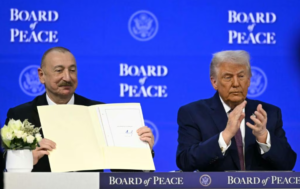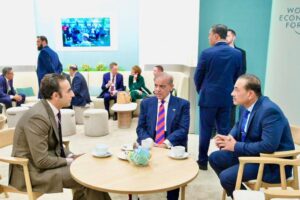From the World of Skills…!

Giving Voice to Informal Workers by Turning Skills into Certified Power—RPL
In many developing countries, the economy runs not only on formal education and structured training but also on the untapped strength of informally acquired skills. From master electricians in rural towns to experienced carpenters, tailors, and auto mechanics in urban markets, countless workers have spent years perfecting their craft—without ever stepping into a formal classroom. Yet, their skills remain undocumented, unrecognized, and underpaid. This is where Recognition of Prior Learning (RPL) becomes a game-changing approach in global skills development.
The term “Recognition of Prior Learning” should be understood as a process, undertaken by qualified personnel, of identifying, documenting, assessing, and certifying a person’s competencies acquired through formal, non‑formal or informal learning, based on established qualification standards. It bridges the gap between informal competence and formal qualification, offering both dignity and opportunity to those whose skills have long remained invisible. The concept of RPL originated in countries like Australia and South Africa during the 1990s and has since been adopted across systems in New Zealand, the UK, India, the Philippines, and South Korea.
In Pakistan, where more than 70% of the workforce is informally employed, RPL has enormous relevance. A plumber with 15 years of hands‑on experience, a tailor operating from home, or a driver skilled in logistics—all possess job‑ready skills but lack formal certification needed for better employment or overseas opportunities. Recognizing this, the National Vocational and Technical Training Commission (NAVTTC) introduced RPL as a formal pathway under the National Vocational Qualifications Framework (NVQF), enabling certification in around 70 competence‑based trades.
The RPL process in Pakistan includes orientation, portfolio development, demonstration of skills through practical assessment, and certification by NAVTTC or affiliated bodies. Led by trained and certified assessors, who number around 1,500 with GIZ‑supported capacity building, the process meets nationally approved standards.
NAVTTC now runs 114 assessment centers nationwide. NAVTTC has established RPL assessment centers across all provinces and regions, ensuring nationwide access for informal workers seeking certification. These include centers in Punjab (Lahore, Faisalabad, Multan, Rawalpindi, Gujranwala), Sindh (Karachi, Hyderabad, Sukkur, Larkana), Khyber Pakhtunkhwa (Peshawar, Swat, Abbottabad, D.I. Khan), Balochistan (Quetta, Khuzdar, Turbat), Islamabad Capital Territory (Islamabad city), Gilgit-Baltistan (Gilgit, Skardu), and Azad Jammu & Kashmir (Muzaffarabad, Mirpur). Each center follows standardized assessment protocols under the NVQF and is staffed by NAVTTC-certified assessors. Many centers are operated in partnership with public TVET institutes and private sector facilities to ensure accessibility and relevance. Some locations also function as mobile RPL units, bringing certification opportunities to rural and hard-to-reach communities.
To date, over 50,000 informal workers have been assessed and certified in trades such as plumbing, welding, auto mechanics, hospitality, and information technology. These certified individuals are not only gaining better job security and income, but many are now eligible for foreign employment opportunities, freelance work, or entrepreneurial ventures. Workers underwent a one-day RPL assessment and were declared competent by certified national assessors. Many reported immediate benefits: enhanced professional credibility, access to higher pay slabs, and eligibility for international placements.
The impact is measurable. According to NAVTTC data shared, the number of RPL‑certified Pakistanis sent overseas grew from 374 in 2019 to nearly 2,851 in 2024. The most common trades include plumbing‑solar water heating, welding, masonry, HVACR, and general electrician work. Certification has not only enabled overseas deployment but also increased remittance inflows, elevated worker reputations, and amplified economic impact.
Yet, challenges persist. Awareness about RPL remains low—many informal workers still distrust formal systems. Infrastructure limitations and uneven assessor quality across regions hinder scale-up. Some employers remain unfamiliar with RPL‑certified credentials, and standardized assessment practices are still maturing. Several demographic groups—especially in less‑served areas—face barriers in access and outreach.
To address these gaps, policy makers must move beyond certification. Linking RPL outcomes directly to job placements, microfinance schemes, international migration channels, and entrepreneurship support can enhance impact. Awareness campaigns in local languages, mobile assessment units for remote communities, and stronger public‑private partnerships will be vital. Integrating RPL data into platforms like skillingpakistan.gov.pk can bolster transparency and usability.
Globally, RPL is recognized not just as a credentialing tool but as an instrument of social justice—offering recognition, dignity, and opportunity to those skilled outside formal classrooms. In Pakistan’s context, where informal work underpins the economy, RPL is more than policy—it’s essential infrastructure. It gives the silent majority a voice, the invisible worker a name, and unspoken skill a future.


